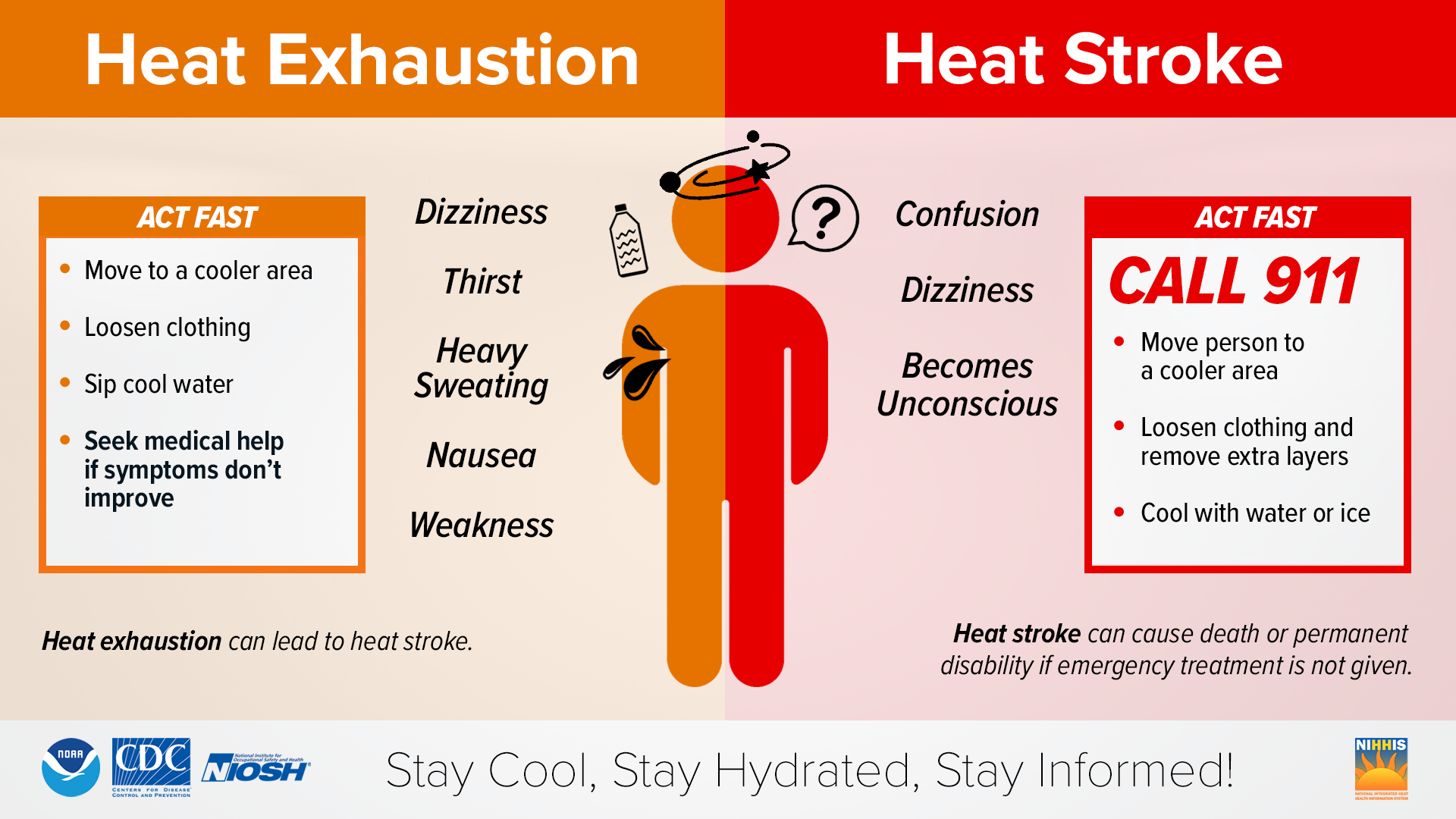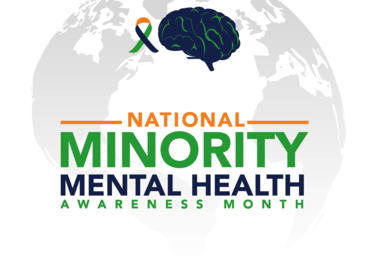Extreme Heat Prevention

TULARE COUNTY COOLING CENTERS, CLICK HERE
SUMMER SAFETY TIPS - LISTOS CA, CLICK HERE
EXTREME HEAT - CALIFORNIA DEPARTMENT OF PUBLIC HEALTH (CDPH), CLICK HERE
EXTREME HEAT AND YOUR HEALTH (CDC), CLICK HERE
TAKE SPECIAL CARE OF ANIMALS DURING EXTREME HEAT, CLICK HERE
When temperatures are forecasted to reach 105 degrees and evening temperatures stay at 80 degrees for at least three consecutive days, Tulare County Public Health reminds community members to focus on staying cool and avoiding heat reactions.
Tulare County and incorporated cities offer Cooling Centers during the hot daytime hours for those who don’t have air conditioning. The list of Cooling Centers county-wide is available anytime at https://tchhsa.org/eng/public-health/public-health-emergency-preparedness-phep/cooling-and-warming-centers-live-interactive-map, or call 2-1-1 of Tulare County.
Community members should protect themselves against heat-related illnesses during high heat conditions by following these recommended measures:
- Drink plenty of fluids and avoid alcoholic or caffeinated beverages.
- NEVER leave any person or animal in parked vehicles. Temperatures can exceed 120 degrees within 10 minutes, even with the windows down, resulting in serious illness or death.
- Use air conditioning or spend time in air-conditioned locations like malls or libraries.
- Use portable electric fans to exhaust hot air from rooms or draw in cooler air.
- Avoid unnecessary physical activity if you are outside or in a hot building.
- Avoid going out in the heat and direct sunlight if you can, or rest often in shady areas.
- When exposed to direct sunlight, wear a head covering.
- Wear lightweight, light-colored, loose-fitting cotton clothing.
- Eat salt-free, light, and easy-to-digest foods such as fruit or salad; avoid heavy meals.
- Ask your physician if you need to make changes to daily medications when exposed to high temperatures.
- Keep electric lights down low or turned off and avoid using your oven.
- Keep shades drawn and blinds closed but windows slightly open (if you are without A/C)
- Take a cool bath or shower periodically, or apply cool towels to cool down your body.
- Keep in contact with friends and family who may be at greater risk of heat illness, such as infants and young children, the elderly, and those with health risks.
Common symptoms of heat-related illnesses include:
- Profuse sweating
- Weakness
- Dizziness
- Headache
- Dim or blurred vision
- Cold, damp skin
- Extreme tiredness
- Nausea
- Hot, dry skin
IF YOU NEED EMERGENCY MEDICAL ATTENTION, CALL 9-1-1 IMMEDIATELY.







